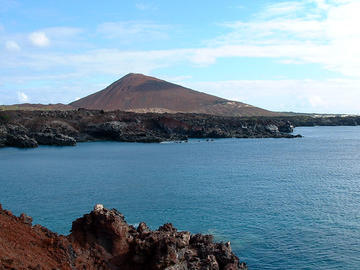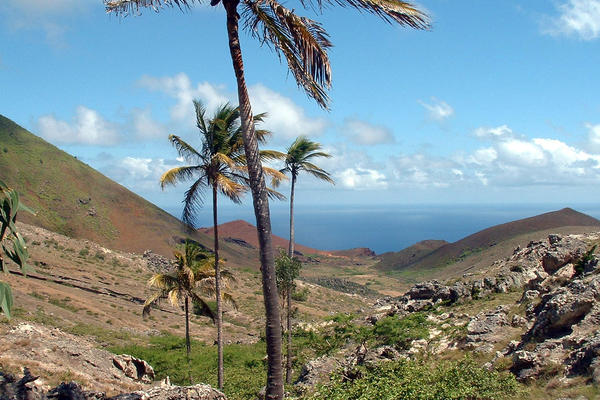New research to investigate recovery of rare earth elements from Ascension Island

Ascension Island (credit: Flickr)
A new collaborative research project investigating the recovery of rare earth elements (REEs) from volcanic sedimentary rocks on Ascension Island has received £313k of funding from Innovate UK. Oxford Earth Sciences faculty Professor Jon Blundy and Professor Mike Kendall will play key roles in the research, which will explore the potential for critical materials recovery from the island. The 12-month project, entitled “Feasibility study of Ascension Island as a UK source of rare earth elements” is a collaboration between the Department of Earth Sciences, Ascension Earth Resources and Marriott Well Engineering and Management Services Ltd.
Ascension Island, a British Overseas Territory, is a remote volcanic island in the South Atlantic Ocean. Geologists estimate that land was first created here on the order of a million years ago. Much of the island is made of dormant craters and lava domes, courtesy of its volcanic origin. Volcanoes are the source of a vast number of critical minerals, many of which are necessary for the energy transition, and in recent years the prospect of mining different elements from volcanoes, such as those held in magmatic brine, has gained further attention.
This project will use geophysical methods to image the subsurface to explore for layers of permeable sedimentary rocks, formed from volcanic ash during explosive eruptions. These geophysical surroundings will then be correlated with drill cores from geothermal exploration wells collected in the 1980s. In combination, these data will provide high resolution images of the subsurface down to about 500 metres depth. Further analysis will involve performing geochemical analyses of the rocks and making measurements of their geophysical properties.
“This is another exciting strand of my Royal Society Research Professorship “From Volcanoes to Green Mining” that is looking to at ways to recover both critical metals and geothermal energy from volcanic systems. We are very grateful to Innovate UK, FCDO and Ascension Island Government for supporting this research.”
– Professor Jon Blundy
This research is part of a broader Earth Sciences initiative to explore the ‘saline geofluids resource landscape’, which includes a variety of natural and engineered metal-bearing saline fluids, such as geothermal waters and oilfield brines. Related research includes the £1M Oxford Martin School programme Rethinking Natural Resources and a £1M research grant from EPSRC entitled "Recovery of Metals from Geothermal Brines”, which is a collaboration with the Department of Chemistry.
The ultimate aim of these projects is to develop novel, sustainable strategies for critical materials recovery from subsurface fluids that do not require open or underground mine pits, tailings dams and related environmental impacts. Such strategies represent an important step towards meeting the increased demand for critical raw materials needed for the low-carbon energy transition.
“This is an exciting time in the Earth Sciences, as we address some of society’s most pressing problems. How we provide the critical metals for renewable energy in an environmentally sustainable way is a key focus of research here in Oxford. Recent advancements in geophysical instruments are opening up new possibilities for how we explore for geothermal brines that can be laden with valuable metals. This project seeks to show a proof of concept in one of the UK's overseas territories - Ascension Island.”
– Professor Mike Kendall

Ascension Island Palm Trees (credit: Flickr)
The first field campaign to Ascension Island will take place during October 2024 and will focus on deployment of geophysical equipment. The equipment has already been shipped to the island; a six-person field party will fly in from RAF Brize Norton on 16th October for a ten-day campaign.
For more information about the project, see the Innovate UK website.
This study was funded through the “CLIMATES: Supply chain innovations for rare earths, strand 1” initiative. The project has the backing of the Foreign, Commonwealth and Development Office (FCDO) and the Ascension Island Government and is being carried with help from British Geological Survey.




